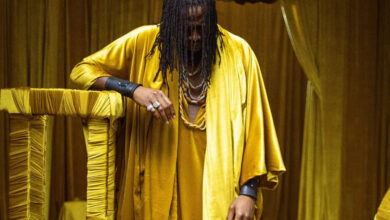Monocasts Expose Gaps in Zimbabwe’s Music Industry

Clive Mono Mukundu, a renowned record producer and guitarist, continues to shape the musical landscape with his innovative platforms: Monocasts and Monomerisation. Mukundu explains the distinction between these two initiatives: Monomerisation offers a broad conversation with anyone on various topics, while the Artiste to Artiste MonoCast specifically targets conversations with those working behind the scenes in the music industry.
The Artiste to Artiste MonoCast, a feature on Mukundu’s platform, brings to light the struggles and untold stories of musicians who are integral to Zimbabwe’s music scene but have long been overlooked. Recent discussions have shed light on the industry’s challenges, focusing on artists who played significant roles but have not received adequate recognition.
One key conversation highlighted the thoughts of sungura music guitarist and mentor, Madzibaba Nicholas Zacharia. In an insightful MonoCast interview, Shepherd Chinyani, a notable figure in the industry, reflected on the prolonged struggles of Zimbabwe’s music industry, particularly its slow development. Chinyani attributed this delay to a lack of a national strategy for the sector and reminisced about the tough conditions of his youth, including severe shortages of music equipment. He emphasized how, during those times, some artists managed to acquire instruments while others are still facing financial hardship. Chinyani also praised the efforts of Kireni Zulu, who formed the Zimbabwe Music Legends Group, a platform aimed at improving the welfare of musicians.
Mono Mukundu’s approach to podcasting is distinctive and unconventional. Unlike traditional television interviews where a host simply asks questions, MonoCast is a dynamic dialogue where both parties engage equally in conversation. This style was unfamiliar to many of Mukundu’s followers, who initially expected a more conventional format. However, over time, they’ve come to appreciate the depth and authenticity of these conversations.
Mukundu further elaborates that his platform is a space for individuals who work behind the scenes. He spoke highly of guitarist and music producer, Anthony Gasani, who has worked across genres and contributed significantly to the sound of artists like Charles Charamba. Gasani’s contribution to Charamba’s iconic tracks such as Mhinduro Iripo and Kuteerera Kunokunda Chibairo exemplifies the crucial role that musicians who work behind the scenes play in shaping the industry.
In his interviews, Mono Mukundu has also shared his experiences working with the late Andy Brown, shedding light on the collaborative nature of the music industry, where creative input from all corners helps to elevate the music produced.
Some emerging trends also surfaced during these conversations. For instance, solo artist John Muyambo (aka Chibhodhoro) shared how difficult it was to secure permanent positions in bands early in his career. His breakthrough came when he was accepted into prominent bands like Safirio Madzikatire’s Mukadota Family and Tanga Wekwa Sando. Despite these challenges, Chibhodhoro spoke highly of his career trajectory and his time with some of Zimbabwe’s greatest musicians.
Other notable artists featured in the MonoCast include Solo Makore, who reminisced about his time with Simon Chimbetu’s Orchestra Dendera Kings, and Joana Mao, a female guitarist who self-taught herself through YouTube tutorials and later honed her skills further with assistance from other musicians.
Through these discussions, Mukundu not only brings attention to the importance of musicians in behind-the-scenes roles but also advocates for more formalized platforms for music education. Joana Mao, for instance, called for the establishment of schools of music where aspiring musicians can receive professional training in a more structured manner.
The Monocasts, with their authentic conversations, continue to expose the gaps in Zimbabwe’s music industry and provide a platform for musicians who have not been given their due recognition. Mukundu’s platform is a crucial step towards celebrating the unsung heroes of the music industry and addressing the long-standing challenges faced by musicians in Zimbabwe.




